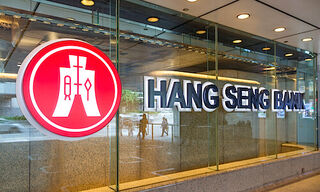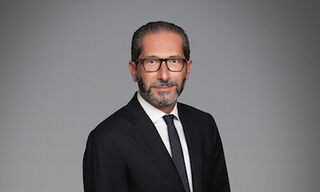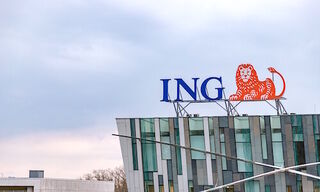John Hogue, the head of Citi innovation labs in Singapore and New York, which proof ideas to improve the U.S. bank’s services with customers, doesn't mind when ideas bomb.
«We feel very comfortable with failure in here,» John Hogue tells finews.asia in Citi’s lab in Changi Business Park, a sprawling complex roughly 20 kilometers outside Singapore’s financial district. The New York-based bank is one of Swiss banks' fiercest rivals in the region for managing the finances of the wealthy.
«When ideas don’t work, we fail them fast, but we also fail them smart so we understand why it didn’t work,» Hogue says. «Was it limitation, a need for more robust technology? Was it that customer adoption was not there?»
Of course, failure isn’t Hogue’s aim. Instead, Citi is seeking to crack one of the biggest conundrums facing banks worldwide at the moment: making complex, confidential, and sophisticated financial services and advice as simple and easy as, say, ordering an Uber curbside.
«The way we look at the lab here is all about how are we going to make our customers’ experience better, how we are going to remove pain and friction points,» says Hogue, who is also part of Citi FinTech, a unit of the consumer bank developing mobile banking services.
Angst Over Tech «Eating Our Lunch»
To do so, he and his counterparts at other banks are borrowing from the playbook of firms like Uber, the San Francisco-based firm which is upending traditional taxi services by matching drivers and clients online.
Faced with the existential threat that tech giants like Google, Amazon or Paypal might «eat our lunch,» as one banker calls it, banks are rushing to adopt newer methods of communication.
«It’s all about how are we taking digital to the customer and making it meaningful for them, I think that’s just unique perspective rather than having the customer come to you with digital.»
«Being able to simplify things; customers like that.»
It is a delicate balancing act for banks: providing Uber-style services simply and quickly, while not losing their gravitas and trust with clients.
Customers Demand Simplification
By comparison to some competitors, Citi runs a lean operation – Hogue is in charge of an eight-person team. And like his peers at rival banks, he is loath to discuss specifics of Citi’s efforts in the digital arms race between banks.
«I’m not going to opine on what we’re currently working on, but if you think about areas like Internet of Things, removing friction points, some are around authentication – things of that nature are focus areas for us because that’s what customers are interested in,» Hogue says.
Citi vs Swiss Banks
Citi is a fierce rival to UBS and other Swiss banks to win wealthy clients in Asia. The American bank's private banking head in the region, Bassam Salem, has in the past not been shy of about criticizing what he perceives as Swiss banks' naive belief of finding a banking Eldorado in the region.
The private banks haven taken different approaches in Asia: in Taiwan for example, a mere $250,000 will get you in the door at UBS, while the threshold for Citigroup's private bank's in Singapore is S$10 million. Instead, the U.S. bank caters to high net worth clients as well as affluent and up-and-coming ones in its consumer banking operations – where Hogue is tasked with finding new ways to deliver banking services.
Part of Citi’s initial push is TouchID in the U.S. which allows users to view their finances on a smartphone after a verifying with their thumbprint, based on biometric security. Rivals for share of digital wallet include Alipay, an online-only bank and payment system in mainland China and Apple Pay, a digital payment service.
Banks in the Tech Hotseat
Last March, Credit Suisse launched a much-lauded digital private bank, while UBS opened an innovation and design center in Singapore as well as unveiled a wealth management app last June.
Banks are under near-constant pressure to roll out new digital offerings that have been fully tested and vetted.
«We’re very aware of that and that’s why we do a model upfront to make sure that we’re making a diligent investment to get us through the proof points, but also be realistic that after us the idea has to get implemented, scaled and distributed and the sooner we can get that to the business, the sooner the bank can get it into market,» Hogue says.
The rapidly-developing Changi business area, where Citi’s technology lab is housed, employs thousands of back-office and development jobs, many of them Indian nationals, leading a prominent Singaporean politician to dub the complex «Changalore».
Singapore's Role
Singapore has been attracting a number of technology start-ups and innovators for banks and financial services, thanks to country’s regulator proactively embracing all things fintech. While detractors say that Singapore's tech labs haven't proven an active disruptor of the banking industry yet, Hogue is upbeat.
«We’ve see a high degree of engagement all around in the space here, whether that be through a variety of government entities, you have academia, you have the startup groups here, some of the incubators – I think it's just poised very well, with the right level of engagement from all the players including the financial intermediaries,» Hogue says.
Experience as a banker isn’t a prerequisite to work in Citi’s labs, because at Citi «we have a lot of those», Hogue laughs.
Instead, Hogue says he is looking for product and service-minded staff, who can think like an entrepreneur, emphathize with customers and remain independent and balanced -- not getting wedded to ideas because many of them fail.
«Wholesale, an idea may not work, but parts of it may and may be able to reimagined.»


























